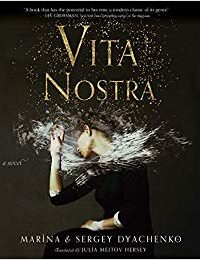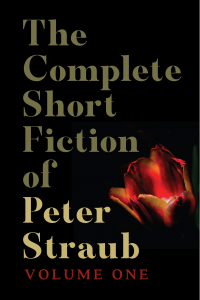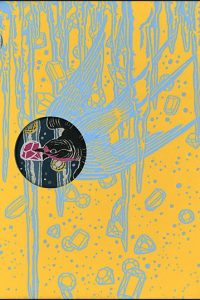Gary K. Wolfe reviews Paul Cornell
 There’s a lot of respectable thriller DNA in Paul Cornell’s first urban fantasy novel London Falling. From one perspective, it’s simply an account of the worst football fan in the world. From another, it joins the great game of Hidden London novels, which has seen recent entries from writers as diverse as Neil Gaiman, China Miéville, Dan Simmons, and Ben Aaronovitch; and from yet another it’s a well-researched police procedural with a gritty and convincing sense of setting. From still another, it invokes the venerable tradition of Second Sight – the capacity to see supernatural manifestations invisible to most of us (and sometimes to foresee the future), which we can trace all the way from Homer to Haley Joel Osment. Perhaps most important, at least in terms of the possible sequels that are clearly prepped in the end, is Cornell’s not-too-unlikely band of heroes – four metropolitan cops who, without aid of supernatural powers themselves, must face down seemingly all-powerful demonic forces. The most famous template for this is probably what Dracula critics have taken to calling that novel’s Crew of Light – a term equally apt for London Falling – and Cornell even provides a kind of analogue of Mina Harker in his formerly victimized female team member, but most modern readers are more likely to be reminded of Buffy’s Scoobie Gang. In other words, Cornell is pushing a lot of classic buttons here, and he knows it. While it’s easy to see novels like this as derivative, the traditions they invoke are so well established that they might more productively be seen as explorations of and variations on a particular form.
There’s a lot of respectable thriller DNA in Paul Cornell’s first urban fantasy novel London Falling. From one perspective, it’s simply an account of the worst football fan in the world. From another, it joins the great game of Hidden London novels, which has seen recent entries from writers as diverse as Neil Gaiman, China Miéville, Dan Simmons, and Ben Aaronovitch; and from yet another it’s a well-researched police procedural with a gritty and convincing sense of setting. From still another, it invokes the venerable tradition of Second Sight – the capacity to see supernatural manifestations invisible to most of us (and sometimes to foresee the future), which we can trace all the way from Homer to Haley Joel Osment. Perhaps most important, at least in terms of the possible sequels that are clearly prepped in the end, is Cornell’s not-too-unlikely band of heroes – four metropolitan cops who, without aid of supernatural powers themselves, must face down seemingly all-powerful demonic forces. The most famous template for this is probably what Dracula critics have taken to calling that novel’s Crew of Light – a term equally apt for London Falling – and Cornell even provides a kind of analogue of Mina Harker in his formerly victimized female team member, but most modern readers are more likely to be reminded of Buffy’s Scoobie Gang. In other words, Cornell is pushing a lot of classic buttons here, and he knows it. While it’s easy to see novels like this as derivative, the traditions they invoke are so well established that they might more productively be seen as explorations of and variations on a particular form.
The novel lays out its police procedural street cred up front, beginning with undercover cops infiltrating the gang of a powerful drug lord named Toshack, who has somehow taken over most of London with the aid of some shadowy, unnamed assistants that even his gang members have never seen. It starts getting a little odd as he leads the gang from one empty house to another, looking for something, but gets odder fast, after Toshack is taken into custody and, just as he begins a promised confession, explodes in a torrent of blood in the interrogation room. With little to go on, Detective Inspector Quill, aided by a brilliant intelligence analyst named Lisa Ross and two of the undercover cops, Costain and Sefton, start investigating Toshack’s background, and discover his connection with a legend that anyone scoring a hat trick against the West Ham football team gets gruesomely murdered – but the legend goes back decades before Toshack could have been involved, and eventually leads them to the aforementioned football fan from Hell, a woman named Mora Losley, who we eventually learn has a history far deeper and more ominous than Toshack’s. As the team begins to zero in on Losley, encountering ever-more-bizarre experiences, such as houses that seem to fold in on themselves (this sort of ‘‘folding’’ also figures in Cornell’s series of Jonathan Hamilton steampunkish SF stories), they come in contact with a kind of magical substance that may be the source of Mora’s power, and become gifted with the aforementioned Second Sight, enabling them to see ghosts, demons, even a ghostly bus, that are invisible to just about anyone else. (In case you’re worried this is a spoiler, the book’s cover blares ONLY THEY CAN SEE THE EVIL). London becomes a lot more interesting, and Cornell makes the most of this new oneiric city, at times coming up with impressive setpieces worthy of King or Straub in their most pyrotechnic mode.
But London Falling, at its center, is not really a horror novel, despite such delicious touches as a mental trick that can cause parents of kidnapped children to forget they ever had children. Cornell keeps his focus on the procedural aspects of the story – they keep their operations board updated even as events clearly spiral beyond any normal investigative tactics – and on his Crew of Light, whose members are astutely chosen for a possible series – the stalwart Detective Inspector Quill, the brilliant analyst Ross (whose own backstory provides her with a grim connection to Toshack and Losley), and undercover agents Costain and Seften, both black, one gay, each with a particular set of London visions that seem appropriate to their character and background. Except for a couple of chapters, the novel never fully makes use of the weight of historical injustice that we’re meant to see as underlying the whole mythical backstory (backmyth?), but Cornell takes full advantage of his choice of football matches as a framework for the playing out of ancient curses, and gives us a band of likeable heroes we’ll look forward to meeting again. Ross is the most interesting and fully developed of the heroes in this novel, and Quill seems cut from the same cloth as any number of such wise and competent coppers, but this really just leaves room for every team member to get their moment in the spotlight later on. I suspect we’ll be glad to see what they’re up to.








